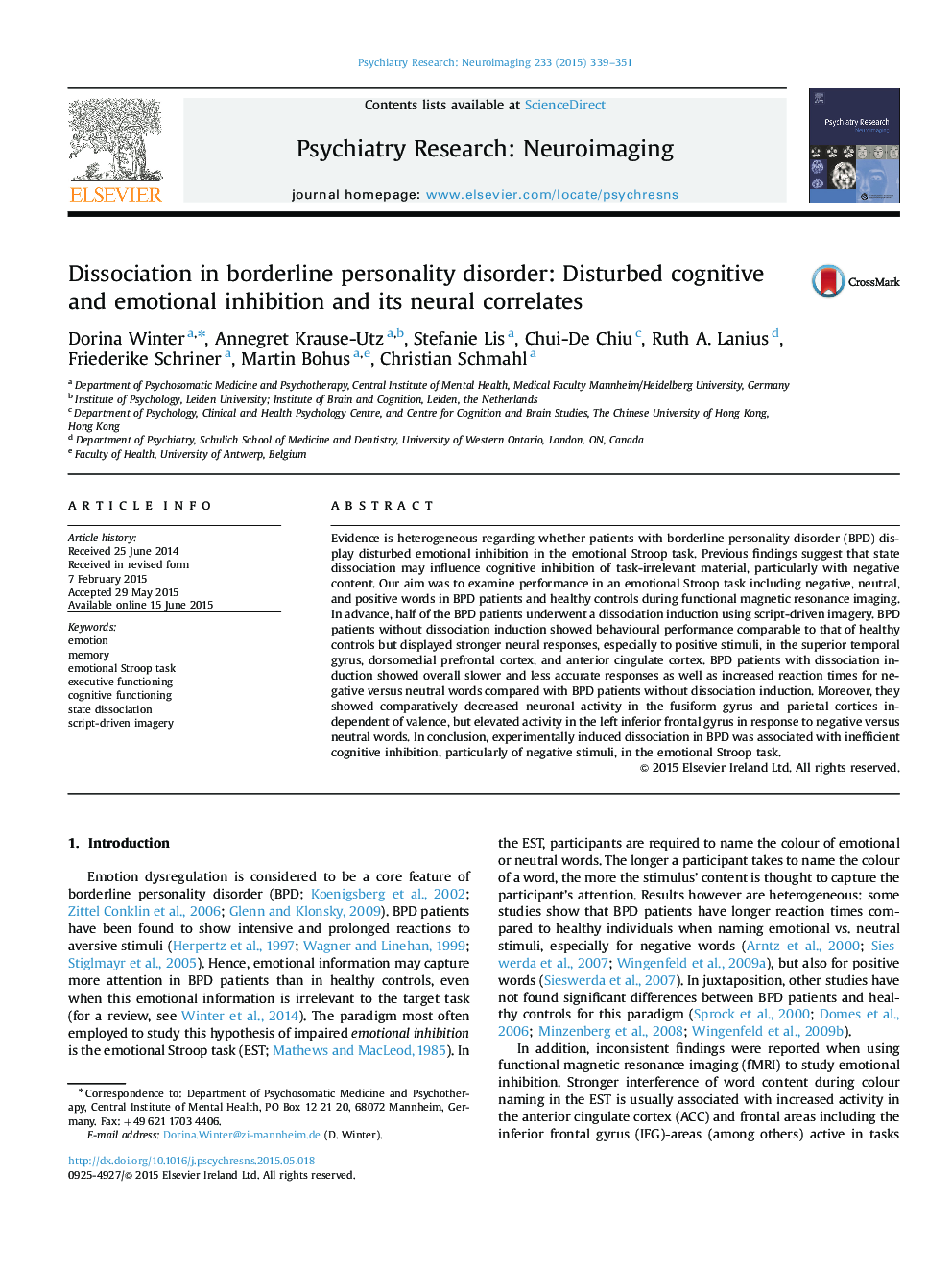| Article ID | Journal | Published Year | Pages | File Type |
|---|---|---|---|---|
| 334722 | Psychiatry Research: Neuroimaging | 2015 | 13 Pages |
•We studied emotional Stroop performance in borderline personality disorder (BPD).•In one of two BPD patient groups, dissociation was induced.•After dissociation induction, BPD patients performed more erroneously and slowly.•BPD patients showed disinhibition of negative words after dissociation induction.•As neural correlate, increased left inferior frontal gyrus activity was detected.
Evidence is heterogeneous regarding whether patients with borderline personality disorder (BPD) display disturbed emotional inhibition in the emotional Stroop task. Previous findings suggest that state dissociation may influence cognitive inhibition of task-irrelevant material, particularly with negative content. Our aim was to examine performance in an emotional Stroop task including negative, neutral, and positive words in BPD patients and healthy controls during functional magnetic resonance imaging. In advance, half of the BPD patients underwent a dissociation induction using script-driven imagery. BPD patients without dissociation induction showed behavioural performance comparable to that of healthy controls but displayed stronger neural responses, especially to positive stimuli, in the superior temporal gyrus, dorsomedial prefrontal cortex, and anterior cingulate cortex. BPD patients with dissociation induction showed overall slower and less accurate responses as well as increased reaction times for negative versus neutral words compared with BPD patients without dissociation induction. Moreover, they showed comparatively decreased neuronal activity in the fusiform gyrus and parietal cortices independent of valence, but elevated activity in the left inferior frontal gyrus in response to negative versus neutral words. In conclusion, experimentally induced dissociation in BPD was associated with inefficient cognitive inhibition, particularly of negative stimuli, in the emotional Stroop task.
